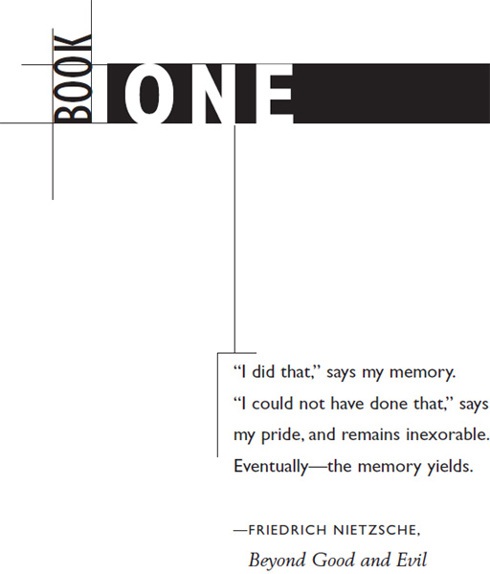Suspect


| Suspect -SA | |
| Stand Alone [200] | |
| Michael Robotham | |
| Vintage (2003) | |
| Rating: | ★★★★☆ |
| Tags: | Fiction, Suspense |
Joe O'Loughlin, a London psychologist, loves his job and loves his family—wife Julianne and eight-year-old daughter Charlie—even more in Australian author Robotham's well-written, if somewhat convoluted, debut suspense novel. O'Loughlin's life takes two disastrous turns: first, he's diagnosed with Parkinson's disease; second, while helping Det. Insp. Vincent Ruiz on the case of a murdered nurse, Catherine Mary McBride, he becomes the primary suspect in the killing. The crime occurred close to O'Loughlin's London home, giving him opportunity, and it turns out that McBride had been his patient and had accused him of harassment, giving him plenty of motive. Vivid characters mostly avoid stereotype, while a fast and furious last section makes up for a wealth of asides and anecdotes that, however effectively done, slow the narrative. More seriously, the book can't decide whether it's a psychological mystery or a conspiracy thriller and strains credibility well past the breaking point. Still, Robotham shows real promise, putting a fresh spin on the familiar crime fiction trope of the falsely accused man.
Copyright © Reed Business Information, a division of Reed Elsevier Inc. All rights reserved.
Starred Review
Already a hit in the U.K.,
Suspect
may do for psychological thrillers what Scott Turow's
Presumed Innocent
did for the legal variety. Joe O'Loughlin is a psychologist with secrets. He is trying to hide his Parkinson's disease from the world, and his wife suspects he's having an affair. And after a gruff detective asks the doctor for insights into the stabbing death of a young woman, we discover the nurse was an ex-patient who accused him of sexual assault. O'Loughlin has an alibi for the night of the murder, but he decides not to share it. That the psychologist consistently withholds key information from the police, his wife--everyone--makes this tightly plotted story even more compelling. To those who "think that the truth is real and solid," O'Loughlin counters, "The truth isn't like that. If I were to tell you this story tomorrow it would be different than today." This stance makes him a deliciously maddening character to root for, and it soon becomes clear he is a highly compartmentalized person. As a series of damning clues turn up to indict him, O'Loughlin takes flight. But then he taps a hidden reserve of cunning and pluck as he seeks to clear his name--and ultimately discovers just how easy it is to destroy someone's life while trying to figure out what's going on inside his or her head.
Frank Sennett
Copyright © American Library Association. All rights reserved


Synopsis:
Joseph O’Loughlin appears to have the perfect life — a beautiful wife, a loving daughter and a successful career as a clinical psychologist. But nothing can be taken for granted. Even the most flawless existence is only a loose thread away from unravel ing. Al it takes is a murdered girl, a troubled young patient and the biggest lie of his life.
Caught in a complex web of deceit and haunted by images of the slain girl, he embarks upon a search that wil take him from London to Liverpool and into the darkest recesses of the human mind. Ultimately, he wil risk everything to unmask the kil er and save his family.
The Suspect
is a psychological thril er, a novel of ideas and a story of love. Michael Robotham has a remarkable grasp of the subtle turns of the human mind and his clear-cut, cunning prose is a joy to read.

The Suspect
By
Michael Robotham
The first book in the Joseph O’Loughlin series
Copyright © 2005 by Michael Robotham
eISBN: 978-0-385-51528-3
To the four women in my life:
Vivien, Alexandra, Charlotte and Isabella


1
From the pitched slate roof of the Royal Marsden Hospital, if you look between the chimney pots and TV aerials, you see more chimney pots and TV aerials. It’s like that scene from
Mary Poppins
where al the chimney sweeps dance across the rooftops twirling their brooms.
From up here I can just see the dome of the Royal Albert Hal . On a clear day I could probably see al the way to Hampstead Heath, although I doubt if the air in London ever gets that clear.
“This is some view,” I say, glancing to my right at a teenager crouched about ten feet away. His name is Malcolm and he’s seventeen today. Tal and thin, with dark eyes that tremble when he looks at me, he has skin as white as polished paper. He is wearing pajamas and a woolen hat to cover his baldness. Chemotherapy is a cruel hairdresser.
The temperature is three degrees Celsius, but the wind chil has chased it below zero. Already my fingers are numb and I can barely feel my toes through my shoes and socks.
Malcolm’s feet are bare.
I won’t reach him if he jumps or fal s. Even if I stretch out and lean along the gutter, I wil stil be six feet short of catching him. He realizes that. He’s worked out the angles. According to his oncologist, Malcolm has an exceptional IQ. He plays the violin and speaks five languages— none of which he’l speak to me.
For the last hour I’ve been asking him questions and tel ing him stories. I know he can hear me, but my voice is just background noise. He’s concentrating on his own internal dialogue, debating whether he should live or die. I want to join that debate, but first I need an invitation.
The National Health Service has a whole raft of guidelines for dealing with hostage situations and threatened suicides. A critical incident team has been pul ed together, including senior members of staff, police and a psychologist— me. The first priority has been to learn everything we can about Malcolm that might help us identify what has driven him to this. Doctors, nurses and patients are being interviewed, along with his friends and family.
The primary negotiator is at the apex of the operational triangle. Everything filters down to me. That’s why I’m out here, freezing my extremities off, while they’re inside drinking coffee, interviewing staff and studying flip charts.
What do I know about Malcolm? He has a primary brain tumor in the right posterior temporal region, dangerously close to his brain stem. The tumor has left him partial y paralyzed down his left side and unable to hear from one ear. He is two weeks into a second course of chemotherapy.
He had a visit from his parents this morning. The oncologist had good news. Malcolm’s tumor appeared to be shrinking. An hour later Malcolm wrote a two-word note that said, “I’m sorry.” He left his room and managed to crawl onto the roof through a dormer window on the fourth floor. Someone must have left the window unlocked, or he found a way of opening it.
There you have it— the sum total of my knowledge about a teenager who has a lot more to offer than most kids his age. I don’t know if he has a girlfriend, or a favorite footbal team, or a cel uloid hero. I know more about his disease than I do about him. That’s why I’m struggling.
My safety harness is uncomfortable under my sweater. It looks like one of those contraptions that parents strap on to toddlers to stop them running off. In this case it’s supposed to save me if I fal , as long as someone has remembered to tie off the other end. It might sound ridiculous, but that’s the sort of detail that sometimes gets forgotten in a crisis. Perhaps I should shuffle back toward the window and ask someone to check. Would that be unprofessional? Yes. Sensible? Again yes.
The rooftop is speckled with pigeon droppings and the slate tiles are covered in lichen and moss. The patterns look like fossilized plants pressed into the stone, but the effect is slick and treacherous.
“This probably makes no difference, Malcolm, but I think I know a little about how you’re feeling,” I say, trying once more to reach him. “I have a disease too. I’m not saying that it’s cancer.
It’s not. And trying to make comparisons is like mixing apples with oranges, but we’re stil talking about fruit, right?” The receiver in my right ear begins to crackle. “What in Christ’s name are you doing?” says a voice. “Stop talking about fruit salad and get him inside!” I take the earpiece out and let it dangle on my shoulder.
